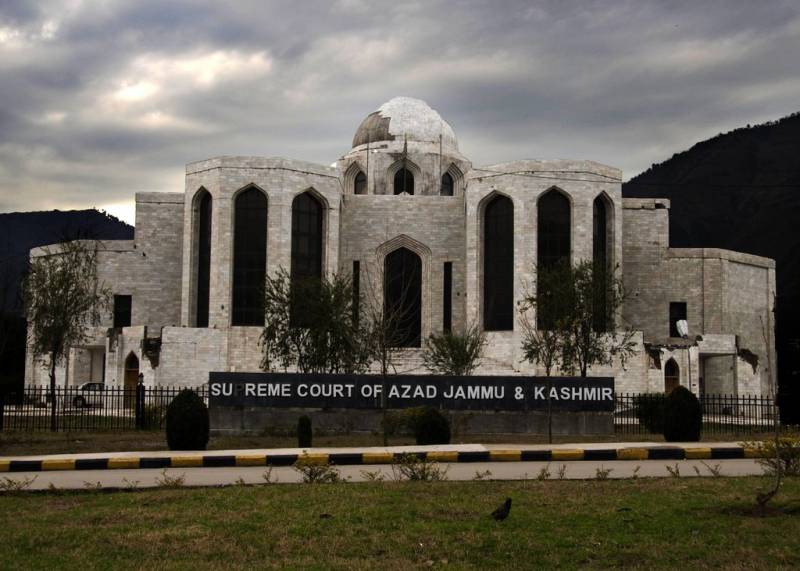In the months leading up to Pakistan’s 2018 election, accountability and transparency have been words thrown around more than ever. With political heavyweights such as Jhangir Tareen and Khawaja Asif following the fall of Nawaz Sharif, the judiciary has acquired a central status in mainstream political debates, raising further questions of reform in the institutions. Where politicians and legislators have been demanded to be held accountable through an independent judiciary, cries from all sides of the political spectrum demand an independent but accountable judiciary.
After the N League’s devastating brush with the judiciary along with subsequent aftershocks suffered by other parties and the succeeding political turmoil resulted in greater focus from parties on strategy to control the judiciary instead of balance and reform through legislations. It seems as if the hard lessons learnt by N league in Pakistan have translated into precautionary action in their most recent judicial appointments in Azad Kashmir.
If the party was serious about its slogan on judicial reform, precautionary measures should have reflected in their recent detailed constitutional amendments in Azad Kashmir that influenced the entire legislature and historical structure of the region.
But measures taken in this regard were not judicial reform or accountability as the party had raised on several platforms after their downfall at the hands of the judiciary, instead they seem to have chosen the method of making appointments that may be considered safer among the high court of AJK.
It is no secret that the recent appointments have followed a long tug of war among the Supreme Court chief and chief justice of the high court, which several opposition as well as government political leaders such as member of assembly Sardar Khalid Ibrahim and former prime minister of the state Sardar Attique Ahmed Khan have questioned, along with numerous advocates lodging writs and raising legal discourse on the inconsistencies in the process. These inconsistencies include the alleged superseding of the high court nominees by the Supreme Court and the government.
Former PM Sardar Attique and MLA Khalid Ibrahim have raised matters of regional, caste bias and political preference as well as the sanctity of Azad Kashmir’s institutions in press briefings, protests and assembly sessions.
Matters have extrapolated to the extent that the Supreme Court chief reverted to serving a contempt of court notice to Khalid Ibrahim on his discourse and comments on the court made during an assembly session on the floor of the house, where the latter has proclaimed that he may be arrested but will not be present himself in a court he finds incompetent.
The newly appointed justices in Azad Kashmir even include an advocate that had earlier applied for the party’s ticket, a member of the party’s central executive committee who reportedly stated that the Panama case is a Zionist conspiracy.
The appointment of said judge when questioned by a journalist named to the PML-N backed AJK premier during a press conference was replied by a threat that the prime minister will tell the court to arrest him once he steps at Kohala. The PM clearly stepping out of his constitutional legal jurisdiction and principles of democracy in his fit of micro-aggression bears testament to their “judicial acumen” exhibited in matter already.
Among other judges whose appointments have garnered allegations of severe region, caste (biradari) and political biases. Advocates have raised questions on their qualifications and experience pertaining to the posts.
Such questions have not only been raised by the opposition workers but a writ on the matter is also being pleaded by a former chief prosecutor of Azad Kashmir’s accountability bureau appointed by the PML-N government itself. Advocate Shahid Bahar, who resigned citing matters of conscience, has questioned the merit of these appointments. This goes to show the extent of the controversy generated by the recent judicial stunt.
The turmoil in Azad Kashmir screams for the need of a clearer, inclusive and open method of appointment of judiciary in the region. Though the methodology differs in Pakistan and AJK, the same can be said for Pakistan where judicial activism has taken a meaning much more vast than ever before, laying precedence for regions such as AJK for judicial exercise of powers not originally in their ambit such as the constant use of suo moto.
For any party that gains majority in the coming election, lessons from this judicial debacle should be imperative and judicial reform and transparency should be an utmost priority, with a view of their effects on regions with unconventional constitutional statuses such as AJK. There is no question on the need of an independent judiciary, but there is also no question on the need of an openly accountable judiciary too. If there can be articles 62 and 63 for the legislators of the constitution, then it is only fair for the proclaimed “custodians” of their legislation to face similar statutes and scrutiny.






